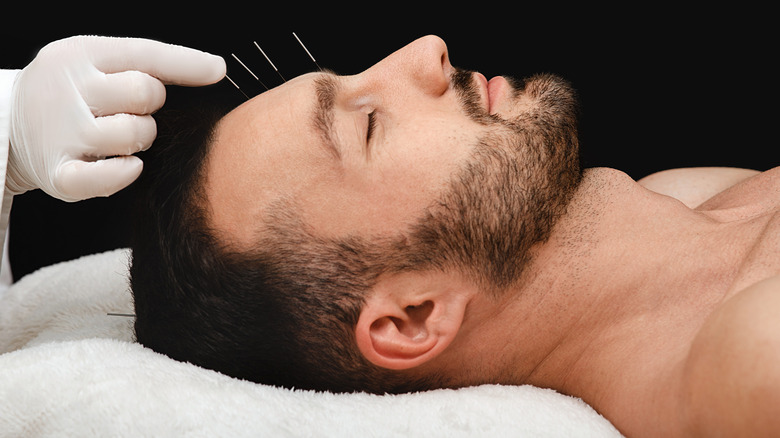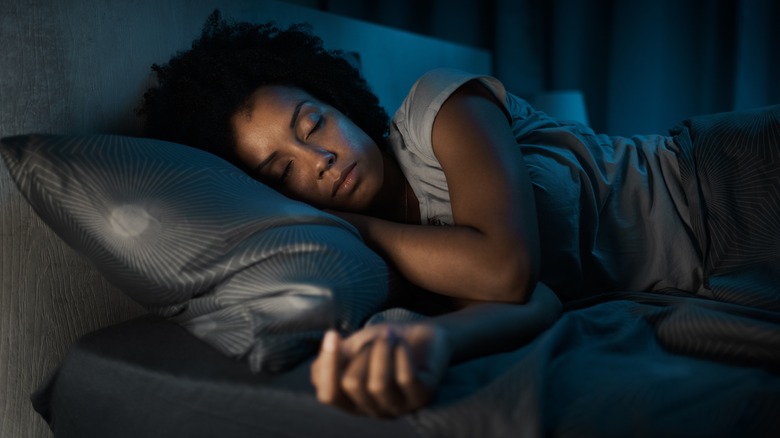How Acupuncture Can Lead To Better Sleep
As a traditional Chinese medicinal practice, acupuncture targets specific muscles and nerves within the body through the insertion of thin needles to help relieve various ailments (via MedicalNewsToday). Among its many health benefits, acupuncture is thought to help alleviate nausea, chronic pain, headaches, and more. In addition, research published in the Journal of Alternative and Complementary Medicine shows that the practice may also boost our quality of sleep, particularly in those who experience insomnia or other sleep disturbances.
Up to half of all adults in the US are affected by insomnia symptoms, such as difficulty falling asleep, repeatedly waking up during the course of the night, or naturally waking up too early (via the Cleveland Clinic). Mayo Clinic acupuncture expert Dr. Tony Chon has seen how the treatment benefits patients' sleep quality firsthand. "From clinical experience and anecdotally, acupuncture appears to be very helpful," Dr. Chon told Healthline. "Many of my patients communicate a sense of calm after acupuncture that helps them sleep better for several days."
Acupuncture may boost melatonin production
So how exactly does acupuncture affect the body's sleep cycle? According to a 2004 study published in The Journal of Neuropsychiatry and Clinical Neurosciences in which 18 adults were administered 5 weeks of acupuncture treatments for anxiety and insomnia, acupuncture was shown to increase melatonin output — a sleep-facilitating hormone (via WebMD). As a result, participants displayed improvements in sleep efficiency, time spent asleep, time needed to fall asleep, and frequency of wake-ups throughout the night.
In a 2009 analysis of over 40 clinical trials examining acupuncture as a treatment for insomnia, researchers compared its effectiveness to that of no treatment, medications, and sham acupuncture — a placebo treatment in which the needles are not fully inserted (via the World Journal of Acupuncture). Researchers determined that acupuncture produced better outcomes in sleep quality and duration, compared to the alternatives, with combination treatments shown to be most effective.
If you're interested in pursuing acupuncture to help manage sleep issues, be sure to seek services from a licensed practitioner, advises Healthline.


